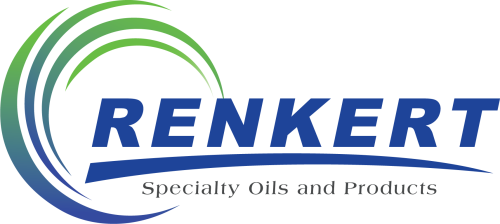Sustainability is no longer optional for the oil industry—it’s an expectation.
As environmental regulations tighten and businesses prioritize eco-friendly practices, the demand for biodegradable oils continues to rise. These advanced formulations help reduce pollution, improve workplace safety, and ensure compliance with environmental standards.
One breakthrough in this space is Shell GTL isoparaffins, a readily biodegradable lubricant solution that offers exceptional purity and performance. Supplied by Renkert Oil, these isoparaffins are transforming industries by providing an environmentally friendly alternative to conventional petroleum-based products.
In this article, we’ll explore the latest advancements in biodegradable lubricants, the regulatory landscape shaping the industry, and why Shell GTL isoparaffins are leading the way in oil industry sustainability.
Suzanne Kingsbury, Director of Quality
The Role of Lubricants in Oil Industry Sustainability
Lubricants are essential in a wide range of industries, from manufacturing to food processing and metalworking. However, traditional lubricants, particularly those derived from crude oil, often contain hydrocarbons that can be harmful to the environment.
It is estimated that 40-60 percent of all mineral oil-based lubricants are lost to the environment during their lifecycle. If spilled or improperly disposed of, these lubricants can contaminate soil and water sources, leading to long-term ecological damage.
Readily biodegradable oils are designed to break down more quickly and safely, reducing their environmental impact. By adopting sustainable alternatives, industries can not only meet regulations but also improve their corporate social responsibility efforts.
The transition to eco-friendly oils and light lubricants aligns with growing sustainability initiatives across the industry, making biodegradability a key factor in future oil development.
Advancements in Biodegradable Oils and Light Lubricants
To meet the growing demand for sustainable solutions, researchers and manufacturers have been developing new biodegradable oils with improved performance and durability.
Key advancements include:
- Synthetic biodegradable lubricants that offer enhanced oxidation stability and viscosity retention.
- Plant-based lubricants with naturally biodegradable properties.
- GTL (Gas-to-Liquid) technology, which produces ultra-pure, low-toxicity lubricants derived from natural gas that are environmentally friendly and highly effective.
One of the most exciting 21st century developments: Shell GTL isoparaffins, a synthetic, readily biodegradable alternative to traditional mineral oils.
Thanks to their high purity, low volatility, and low viscosity, these light lubricants, carrier oils, emollients, and fluids are proving to be an ideal solution for industries seeking both performance and sustainability.
Regulatory Compliance and the Push for Sustainability
Government agencies and international regulatory bodies have implemented strict guidelines to promote the use of biodegradable oils. Key regulations include:
- EPA (Environmental Protection Agency) mandates for low-toxicity lubricants in certain industrial applications.
- EU REACH (Registration, Evaluation, Authorization, and Restriction of Chemicals) regulations encouraging the use of environmentally safe chemicals.
- EU Ecolabel and USDA BioPreferred Program, which certify lubricants with high biodegradability and low environmental impact.
Industries that proactively adopt biodegradable oils not only ensure compliance but also demonstrate leadership in sustainability.
Renkert Oil is at the forefront of this transition, providing high-performance, regulatory-compliant oil and light lubricant solutions to businesses looking to reduce their environmental footprint.
The Future of Biodegradable Oils
As the oil industry continues to embrace sustainability, the role of biodegradable oils and light lubricants will only grow. Companies are investing in research to develop:
- Lubricants with even higher biodegradability and lower toxicity.
- GTL-based solutions that outperform traditional lubricants in purity and safety.
- Custom formulations for specific industrial needs, ensuring sustainability without compromising performance.
The integration of GTL technology into light lubricant manufacturing is a major step forward in creating cleaner, more sustainable products. Shell GTL isoparaffins, in particular, are setting new industry standards for performance and environmental responsibility.
According to Shell, “Gas-to-liquids (GTL) technology offers a pathway to produce high-purity hydrocarbons with significantly lower environmental impacts compared to traditional crude oil-derived products.”
Why Shell GTL Isoparaffins Are Leading the Way in Oil Industry Sustainability
When it comes to high-performance, biodegradable oils, Shell GTL isoparaffins stand out as a best-in-class solution. Supplied by Renkert Oil, these light lubricants and carrier oils offer a unique combination of purity, performance, and environmental benefits.
Key Advantages of Shell GTL Isoparaffins
- Ultra-Pure & Odorless – Unlike conventional paraffin-based lubricants, Shell GTL isoparaffins are colorless, odorless, and tasteless, making them ideal for industries requiring high standards of cleanliness (e.g., food processing and cosmetics).
- Readily Biodegradable – These lubricants break down naturally (>60% in 28 days), significantly reducing environmental impact.
- Low Volatility & Excellent Stability – With low viscosity and high thermal stability, they offer superior performance in metalworking fluids, degreasers, rust preventatives, and industrial lubricants.
- Versatile Applications – Shell GTL isoparaffins are used in metal rolling, mold release agents, defoamers, and even food-safe lubrication.
- Regulatory Compliance – These isoparaffins meet FDA, European Pharmacopeia, and CTFA (Cosmetic, Toiletry, and Fragrance Association) requirements, making them a safe and responsible choice across multiple industries.
By adopting Shell GTL isoparaffins, manufacturers can significantly reduce their environmental impact while benefiting from a high-performance, ultra-pure lubricant.
Advance Oil Industry Sustainability: Partner with Renkert Oil as Your Shell GTL Supplier
The future of oil industry sustainability depends on enhanced biodegradability. Advances in synthetic and GTL-based light lubricants are driving the industry forward, offering eco-friendly alternatives that meet regulatory requirements and business needs.
Among these advancements, Shell GTL isoparaffins stand out as a game-changing solution. With exceptional purity, biodegradability, and superior performance, they offer a sustainable path forward for industries seeking compliance and efficiency.
Contact Renkert Oil today to learn more about how Shell GTL isoparaffins can enhance your sustainability strategy.

